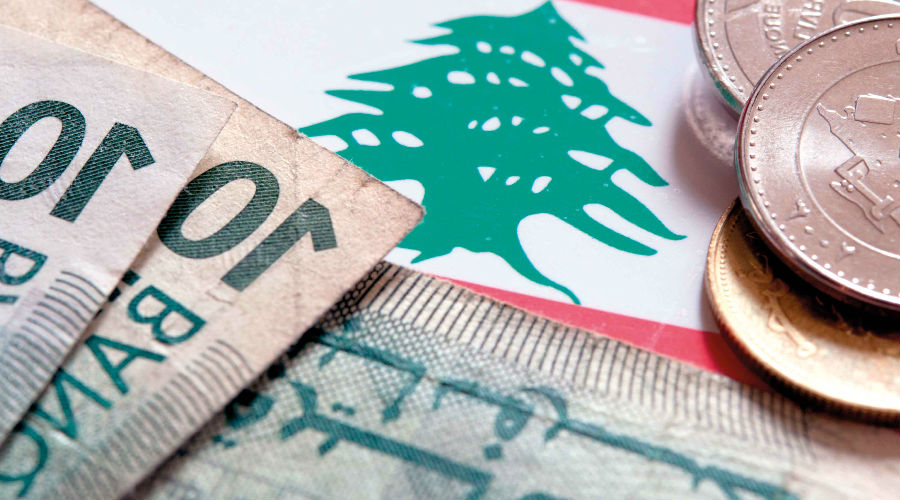The sudden resignation of Lebanese prime minister Saad Hariri on October 4, 2017, may impose implications on the country’s economy, which showed signs of recovery over recent months. The recovery came on the heels of economic reforms introduced by the government and the parliament. The reforms, which included tax reforms and restructuring the oil industry, led to a rise in tourist arrivals and increasing confidence in the economy. The implications would hinge on how much time is needed to form a new government that would complete the economic measures initiated by its predecessor.
Positive Developments
The signs of improvement came after the formation of a government led by Saad al-Hariri in December 2016, that various stakeholders counted on for reinvigorating a deteriorating economy, especially after it took the following notable measures:
1- Approving a New Budget. In October, the Lebanese Parliament passed the country’s public budget for the first time since 2005. The move represented a positive development in the fiscal landscape. In particular, the years-long lack of budgetary legislation has led to the the fiscal situation spinning out of control and a significant rise in deficit, with public debt soaring to US$78 billion in late May.
The passing of the budget is expected to restore confidence in the economy, help the government take necessary measures to curb public spending and mobilize the required resources, while increasing the country's chances of receiving international assistance to address the burden of hosting millions of refugees.
2- Tax Reforms. Over the past months, the government’s fiscal mobilization to cover public spending and finance public sector wage increases faced several obstacles. For one, the community rejected proposed tax hikes passed by the parliament into Law No. 45 of 2017 in July 2017.
However, after the government brought down the tax increases, the parliament voted to increase value-added tax (VAT) from 10 to 11 percent, income tax, corporation tax to 17 percent from 15 percent as well as taxes on bank transactions, alcohol and tobacco products to finance public sector salaries increased under Law No. 46 of 2017.
3- Reviving the Oil Sector. Following years of failure, the Lebanese government initiated a process in recent months to reorganize the oil industry introducing new rules and enacting legislation to speed up drilling and exploration activity in Lebanon's territorial waters in the Mediterranean Sea.
In January, the government approved two acts on oil and gas production licensing for foreign companies. In the first licensing round, relaunched as part of the reforms, the government opened five offshore blocks (1,4,8,9 and 10) for bidding by 52 companies.
Later in September, the parliament passed a law imposing a 20% tax on oil revenues in addition to a fee of 5 million Lebanese pounds ($3,311), ratified an oil tax bill suggested by the Lebanese Petroleum Administration (LPA) and approved by the government, with a few amendments.
4- Revived Tourism. During the first half of 2017, tourist arrivals rose by 14.25 percent (year on year) to 826,129. The growth was due to an increasing number of tourists from Arab countries, Europe and the United States accounting for 82 percent of total arrivals. This was projected to have a positive impact on the country’s economic growth in the current year.
A New Phase
It is possible to say that the formation a new government led by al-Hariri in December 2016 had positive implications for Lebanon’s economy. Accelerated economic reforms, including fiscal policies, tax reforms reorganizing the hydrocarbon sector raised the ceiling of expectations for economic recovery in the coming years.
However, the recent resignation of al-Hariri may re-send negative signals to the business community in the coming period. According to several views, the current caretaker government cannot set the strategic political or economic directions for the country in the coming period.
In light of this, the economy’s performance is likely to fluctuate due to the current situation, contrary to Finance Minister Ali Hassan Khalil’s reassurances that the Lebanese economy and lira are not in danger following the resignation of al-Hariri.
Moreover, the current government will not be able to sign any new agreements with foreign oil companies until a new government is formed. This would make it less possible for the country’s oil sector to regain its pre-2013 position. In 2013, first first oil and gas exploration and production licensing round was launched and 46 companies qualified for bidding, and later the licensing process was put on hold.
The current political confusion is likely to force foreign investors to take a cautious approach to investment in Lebanon, and even cause a decline in tourist inflow in the coming period.
In light of this, it appears that the financial pressure on Lebanon will mount to negatively impact the otherwise stable monetary and banking situation, and will eventually lead to a weak outlook for the Lebanese economy in the medium term. That is, the real GDP growth rate is projected to remain at 2 percent, while, according to official estimates, the cost of hosting Syrian refugees has increased to $18 billion since the crisis began in the neighboring country in 2011.


